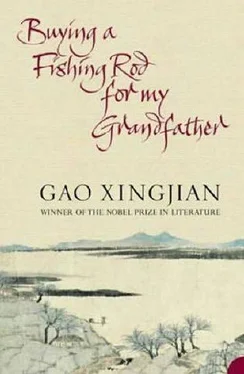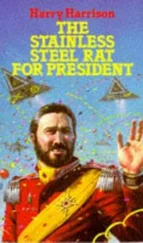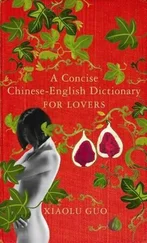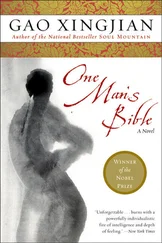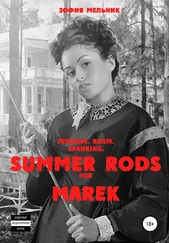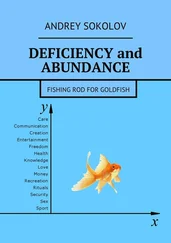The principal, who has a dark, ruddy complexion, a big Adam's apple, and a husky voice, tells them the history of the school. His low drone reverberates around the ridgepole and rafters of the big temple-like ceiling above the auditorium, filled with long wooden benches. Bells start ringing, and the sparrows fly off in fright.
Below the ceiling are several Taoists clad in long gray cotton gowns, their hair in topknots. Heads bowed and hands clasped in front, the one in the lead swinging a horsetail whisk, they are chanting scriptures around a coffin.
The lid of the coffin is open and he almost guesses that the corpse in the coffin, with its head wrapped in the shroud, is himself. Apparently confused, he turns and looks around, although he doesn't know what it is he is looking for. However, he sees behind him two big heavy doors that are half-open, and outside in the sun, on the stone steps, a little wooden bucket with peeling paint. A lizard is crawling on the stone step in front of the wooden bucket.
He walks out of the auditorium, or maybe it was originally a temple that had been converted into a school auditorium, or maybe it was in fact a temple hall. In the shadows of the covered walkway stands an old stone tablet with parts missing. It looks like the wild-grass calligraphy of Mi Di, but the inscription in very standard regular script reads: "Written by Meng Chun in the ding-mao year of the reign of Yuanyou of the Great Song Dynasty." Long ago, ink rubbings were made of it, but later the main piece of calligraphy was engraved over and now can barely be made out and is completely undecipherable.
He walks out into the sun. A boy in a vest and shorts, riding on a brand-new Dinglan junior bicycle, passes by. He asks the boy something. The boy stops and, with a foot on the grass, points ahead, then speeds off.
He walks on ahead and passes a piece of neatly trimmed lawn. Past the lawn, in a mass of weeds, are the shiny handlebars of a bicycle. He goes over to have a look, and covered with weeds in the ditch is the frame of a Dinglan bicycle.
He strides quickly up the hill, begins to run, and then runs faster and faster, panting hard, but in his mind he seems more and more to understand that he is surely pursuing the self of his childhood. On the top of the hill is a sour-date tree, though not a very tall one, with its small leaves trembling in the wind.
The child is running in his direction from behind the hill but stops in front of the sour-date tree and looks about with a worried look. Then, probably discovering something, he dashes off somewhere else. Not far from the top of the hill is a small, sparse forest where between two trees a white bed sheet is drying; something seems to be moving behind the sheet, and the child charges headlong into the sheet but gets wrapped in it and can't get free.
The mountain wind is toying with the sheet. Out of breath and with great difficulty the child manages to lift the sheet and get out, only to find yet another sheet hanging between two trees and flying about.
The child stares for a while, then quietly walks over to it. There seems to be the shape of a person behind the sheet. This time the child carefully and gently lifts a corner of the sheet. Nothing is there, but nearby, another sheet is hanging between two trees. Instinctively, the child looks behind himself.
All around, far and near, sheets are swirling in the wind. Stopping in front of one, he sees the legs of a woman emerging on the white sheet, and he holds his breath to examine the heaving white breasts with protruding nipples. Then, roughly separating the sheets, he comes face-to-face with the child standing among the white curtains with a terrified look in his eyes. There is a loud scream, the sound of the suona , and he covers his face with his hands.
Crawling from the front of the coffin covered in white streamers, the child runs off wailing and howling, and echoing this silent weeping is the long, drawn-out scream of the suona . When the sounds of the child and the suona vanish, there remain around the open coffin only white curtains and paper streamers drifting in the wind.
The gloomy sea keeps rising and the wet mattress is partly floating on the water. The black hat over his face gets closer and closer to the ceiling of the room.
He leaps out of the coffin that is covered in long paper streamers and, dragging the shroud with him, he staggers and stumbles as he flees this mountainside with paper streamers hanging all around. He runs down to the expanse of green lake in the valley, enters the water, plunges into the lake, and somehow becomes tangled in weeds and is struggling. In the distance, ripples are spreading in circles, but it is hard to tell whether he is drowning or swimming out to the middle of the lake.
The sea reaches the ceiling, gurgling like a drowning person who is swallowing water and giving off bubbles like a blocked underwater pipe.
The watery passage grows bluer and bluer and eventually comes out at a seaport with sparkling waves. In the distance, the sea and the sky are virtually one color.
A gray-black floating object is bobbing up and down on top of the waves. As the tide rises and falls, a naked man can be seen lying on a wet mattress that is about to sink.
Lines of white crest surge upon the deep sea; it is ink blue, verging on black. The sky is so bright and the sea wind is so strong.
The flat sea suddenly stands upright. In the trough of the waves, on the mattress about to be engulfed, the naked man, wearing only a narrow leather tie around his neck, is seen removing the black hat from his face with one hand and his sunglasses with the other. In that instant, when the tide crashes down, those dead-fish eyes and the frozen, ambiguous smile on his face can be seen.
Seen through the window, facing the sun, in the distance, on the desolate beach, there seems to be a man sitting in a deck chair, his back to the sea, with a towel draped over him. With one hand he pushes aside the hat over his face and with the other he retrieves a book from the sand and starts reading it.
Gao Xingjian's fiction, plays, and critical essays on literature began to appear in literary magazines for the first time in China during the early 1980s. His book Xiandai xiaoshuo jiqiao chutan (Preliminary Explorations on the Art of Modern Fiction, 1981) created a sensation in the Chinese literary world but was banned upon being reprinted in 1982. Arguably, the 1980s were much more liberal than the Cultural Revolution (1966-1976), during which time Gao had burned all his manuscripts, diaries, and notes rather than allow them to be found and used as life-threatening evidence against him. Nonetheless, even while conscientiously exercising self-censorship, he found that his writings still caused him to be denounced for promoting the decadent modernism of Western capitalist literature. In December 1987, when the opportunity arose, he left China for Europe. Some months later he settled in Paris, where he has lived since.
Gao himself has selected the six stories of this English-language version of Buying a Fishing Rod for My Grandfather: it is his view that these stories are best able to represent what he is striving to achieve in his fiction. The stories, "The Temple," "In the Park," "The Accident," "Cramp," and "Buying a Fishing Rod for My Grandfather," written in Beijing between 1983 and 1986, were first published in various literary magazines in China. These five stories are included in Gao's seventeen-story collection, Gei wo laoye mai yugan (Buying a Fishing Rod for My Grandfather), which he compiled a few weeks prior to his departure from China. This collection suffered the fate of being rejected by all the major publishers in China but was eventually published in Taiwan in 1989. The last of the stories, "In an Instant," written in Paris in October 1990, was first published in Stockholm in the Chinese literary magazine Jintian (Today) and then included in Gao's Zhoumo sichongzou ( Weekend Quartet), published in Hong Kong in 1996.
Читать дальше
Конец ознакомительного отрывка
Купить книгу
